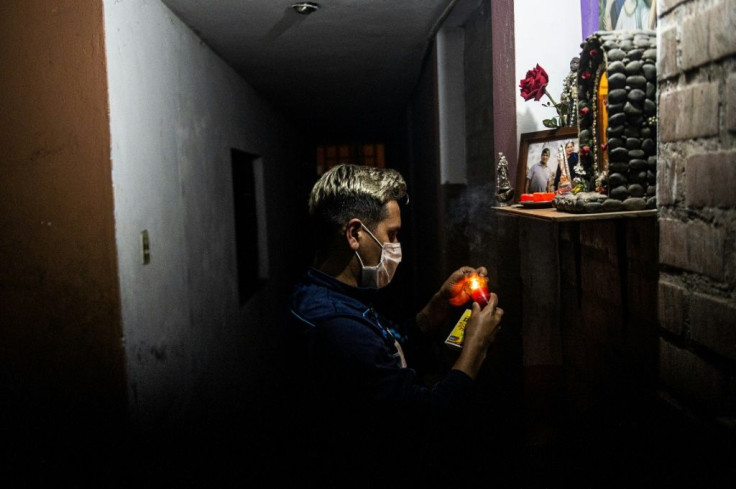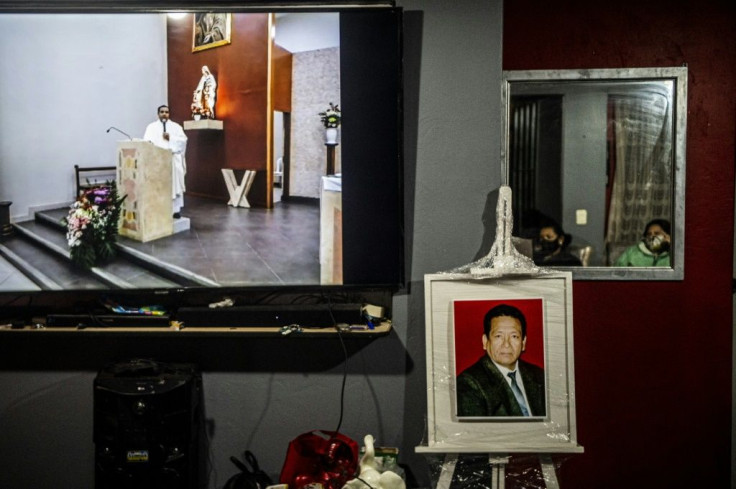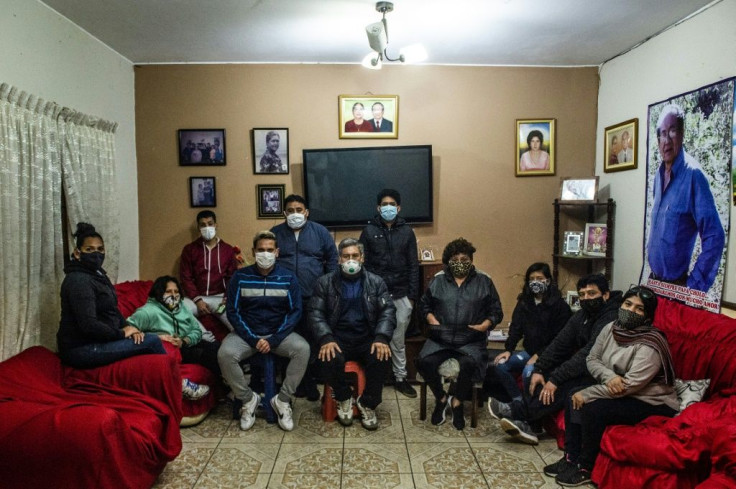'Destroyed': Coronavirus Ravages Peruvian Family
The coronavirus pandemic has been cruel to the Diaz family in Peru, killing five members of the tight-knit clan and leaving another four still hospitalized.
But because Peru's healthcare system collapsed under the strain of the virus, the family has been hit by an additional tragedy: financial ruin.
Like many Peruvians, they had to raid their savings and take out loans from friends in order to cover the expense of mounting medical bills from private health clinics.
"We've been completely destroyed. Now we need to rebuild the family with what we have left," Juan Diaz, a 58-year-old professor, told AFP.

"What's befallen us is like a nightmare, the truth is I wouldn't wish it on anyone," he said, tightly hugging a picture of his parents while lamenting the fact he was unable to attend his mother's funeral due to virus restrictions.
Peru is one of worst hit countries in coronavirus-epicenter Latin America after Brazil and Mexico, with more than 25,000 reported deaths and over half a million cases.
Infections in Peru have been on the rise since a national lockdown was lifted on July 1, prompting the government on Wednesday to reinstate a Sunday curfew, ban social gatherings and enforce mandatory lockdown in more provinces.
Before the devastating pandemic struck, 17 members of the middle-class Diaz family shared a single four-storey brick house in the Chorrillos district of Lima.
But on May 24 that happy life started to unravel with the death of Juan's brother Ernesto, a local tax collector.

"We don't know how the virus got into my house, but the first to fall victim to it was my father," said Ernesto's 32-year-old son, also called Ernesto.
Since then Juan has also lost his 80-year-old father Cecilio, his 77-year-old mother Edith Leyva, and siblings Willy, 42, and 53-year-old Maribel.
"We were seven siblings, like the days of the week, but now we've lost three," said Juan, who also fell ill with coronavirus alongside his wife and daughter.

Those still receiving treatment are in Villa Panamericana, a residential area built to house athletes during the 2019 Pan-American Games but that has since been converted into a hospital to deal with the coronavirus pandemic.
Cecilio, who was diabetic, died on July 11 while he was being rushed to the hospital. Just a week later it was Maribel, then on July 28 Edith and Willy both died.
All five were buried in the same cemetery but health emergency regulations meant few mourners were allowed to attend the funerals.
In the family home there are pictures of the deceased and a sign that reads: "You will always be in our hearts."
In the last few weeks, five members of the family were discharged from the hospital, but four remain in the Villa Panamericana.
Even after they have recovered from the virus, the family will be dealing with the financial fall out.
"We're all insured but the insurance hasn't helped," said Juan.
The Diaz family's healthcare is provided by the subsidized social security system, but that has collapsed under the pressure of the pandemic leading to long waiting lists, meaning they were forced to seek treatment in private clinics.
"It's been a horrible tragedy for my family, it's practically left us bankrupt," said Ernesto Diaz.
"We had to break open the piggy banks, get loans and help from friends to get through the illness.
"Now we want to go back to normal, maybe that will never happen, but we've got to keep going because life goes on."
Julissa Navarro Diaz, 32, the daughter of Maribel, left the hospital this week after battling the virus for three weeks.
"It's shocking not just because my mother was taken from us, but also my grandparents, my uncles," said Navarro Diaz. "It's been a slow recovery."
© Copyright AFP 2024. All rights reserved.





















